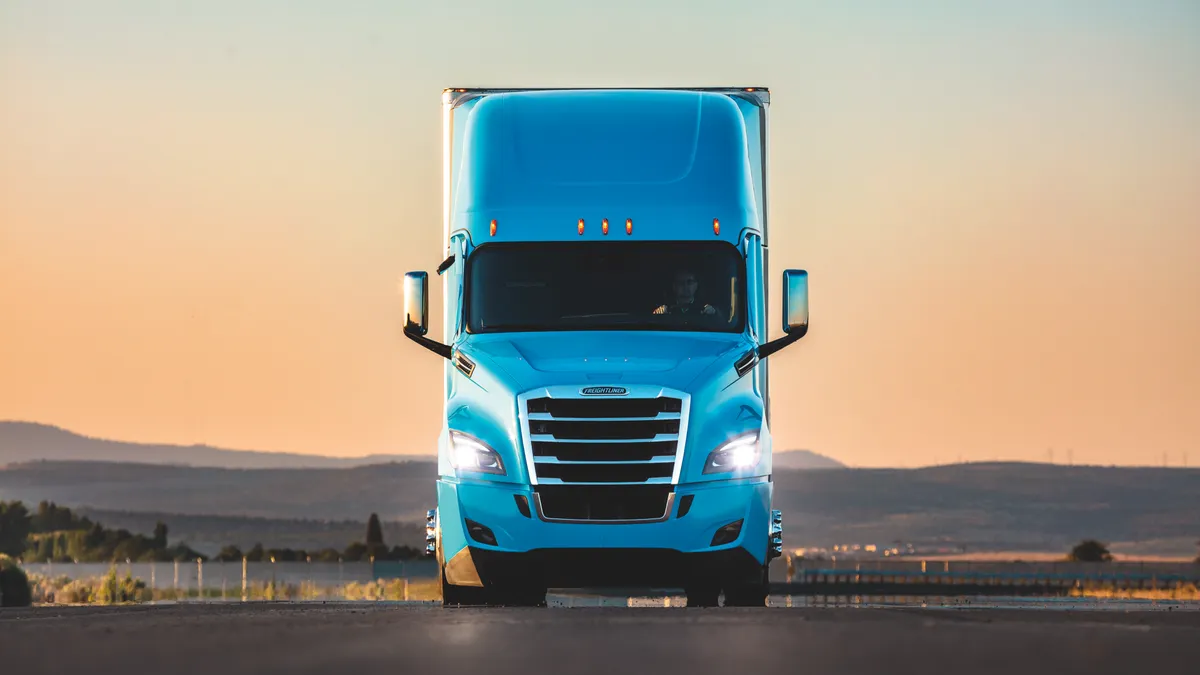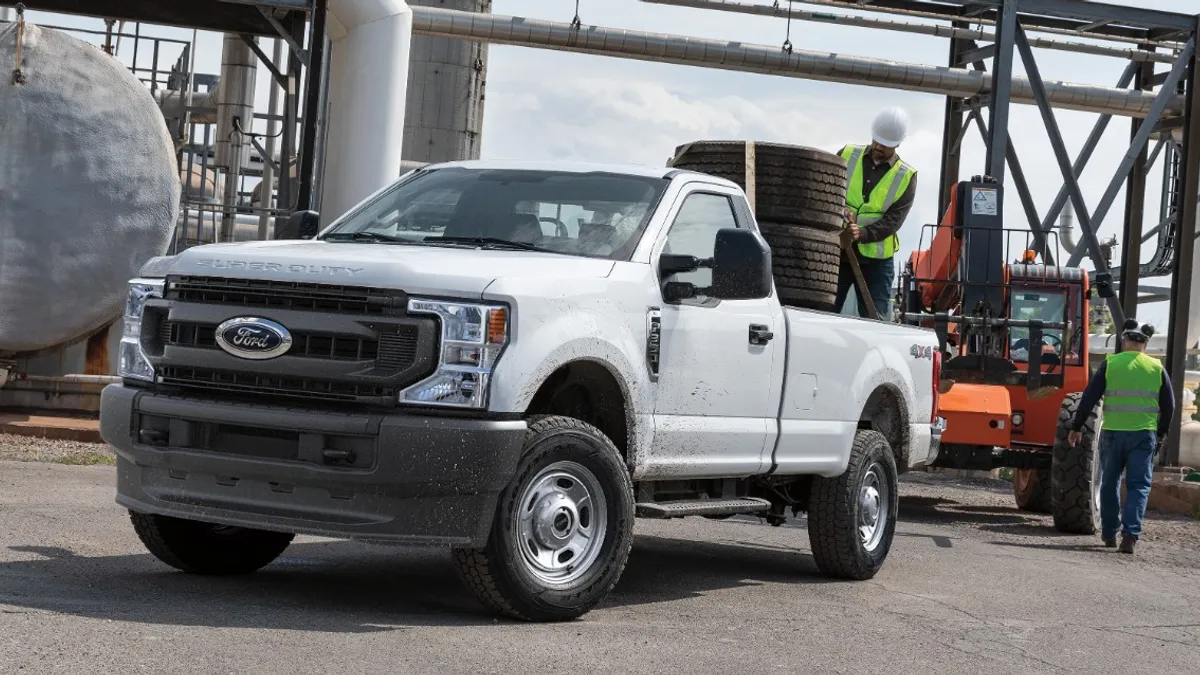Dive Brief:
- Volvo Group and Daimler Truck are teaming up to develop a software-defined vehicle platform for commercial vehicles, according to an October press release
- The 50/50 joint venture, headquartered in Gothenburg, Sweden, will create a dedicated truck operating system and tools that OEMs can use as a basis to make their own digital vehicle features.
- Volvo and Daimler will remain competitors in other business areas and will continue to offer independent products and services, including different digital customer offerings.
Dive Insight:
First announced in May, Volvo and Daimler’s joint venture aims to set an industry standard, offering its brand- and versatile application-agnostic products to heavy duty vehicle manufacturers. The transaction for the new company is expected to be complete in the first half of 2025.
“The signing demonstrates our joint commitment to lead the digital transformation of our industry,” Karin Rådström, CEO of Daimler Truck, said in the release. “The software and hardware from this joint venture will be crucial for achieving unprecedented levels of safety, comfort, and efficiency for our customers.”
The company’s activities will include the specification and procurement of centralized high-performance control units dedicated to commercial vehicles and capable of handling large amounts of data, the release said. It also looks to enhance customer efficiency and experience by decoupling software and hardware development cycles and enabling customers to purchase “over-the-air” updates for digital applications.
“We are joining forces to redefine software architecture and pioneer a new era of self-optimizing trucks,” Volvo Group President and CEO Martin Lundstedt said in the release. “It is a revolutionary response to the challenges of our modern world, and we are proud to be setting the industry standard.”
Volvo and Daimler aren’t the only companies to recognize the benefits of splitting up software and hardware in the development of SDVs. Last month, Panasonic Automotive Systems announced a partnership with Arm, which includes standardizing interfaces for real-time operating systems. The companies aim to decouple advanced driver assistance systems software from hardware dependencies.











